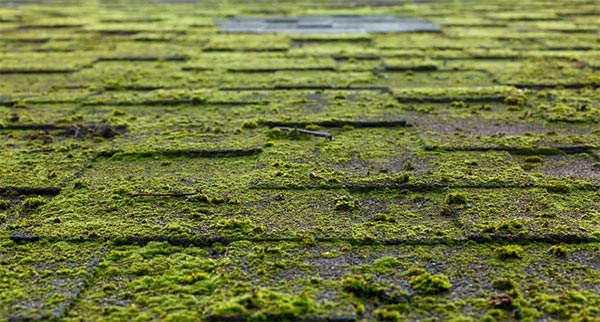Generally, a slate or tile roof can last over 50 years while a wood shake roof may only around 30 years. Asphalt shingles may only last around 20 years. If you want your roof to last its full potential or possibly longer, you need to understand the causes of roof failure so you can reduce the risk of your roof failing sooner than intended.
1. Plumbing Vent Boot Damage

You want to check the base of your plumbing vent boot for signs of damage, such as a crack. Additionally, you should assess the condition of the rubber boot that surrounds the pipe since it can rot or tear. While this part of your roof is small, once the bottom portion sustains damage, water can seep through and start to damage your roof.
2. Moss Growth
You also want to check for moss. You might dislike moss growth on your roof because of its appearance. However, moss isn’t just an aesthetic issue. As the moss remains there, it can cause your roof to degrade.
Additionally, moss can grow in between your shingles and cause them to lift. When they’re no longer firmly attached to your roof, water may work its way underneath your shingles and damage them. This water can cause leaks in your roof as well.
3. Unaddressed Repairs
In addition, you need to address roof repairs properly. You even want to check your insulation and ensure it’s intact. If you don’t take care of necessary repairs, your roof becomes more susceptible to roof damage.
In fact, even a problem that seems minor, such as a few lifted shingles, can cause damage. For instance, when you have a gap underneath your singles, you allow water to seep underneath and wreak havoc.
4. Clogged Gutters
You also need to check your gutters. Your gutters serve the purpose of transporting water off your roof and to the ground. If you don’t regularly clean your gutters, the water has nowhere to go, so it remains on your roof and can cause damage.
Typically, you want to strive to clean your gutters twice per year — once in spring and once in fall. You may, however, need to clean your gutters more frequently if you have many trees surrounding your home.
5. Extreme Weather Changes
Nebraska is known for extreme weather changes. Throughout summer, the temperatures can reach 80 degrees Fahrenheit or higher. On the other hand, in the winter, the temperatures can drop to 30 degrees Fahrenheit or lower.
These extreme weather changes cause your roof to expand and contract. As your roof undergoes this structural movement, you may notice your shingles blister or crack. You might notice issues with the seam of your roof as well.
6. Severe Weather Storms
Unfortunately, Nebraska sits in part of Tornado Alley. On average, Nebraska and other states in the central portion of the U.S. that make up this area receive 45 tornadoes each year. These storms are more prevalent during the spring and summer.
During tornado season, these storms bring high winds and rain to the area, which have the potential to damage your roof.
7. Poor Preventative Maintenance
You need to create a preventative maintenance checklist and adhere to it, or your roof may experience problems. Preventative maintenance is key in extending the life of your roof. In fact, the leading cause of commercial roofing failure a lack of routine maintenance.
You can’t control every cause of roof damage. However, you need to perform routine maintenance, make the necessary repairs, and ensure your gutters are free of debris to prevent damage.
Schedule an appointment for routine maintenance, a repair, or a new roof by contacting Done Right Home Improvements, serving Omaha, NE, and the general vicinity, today.

